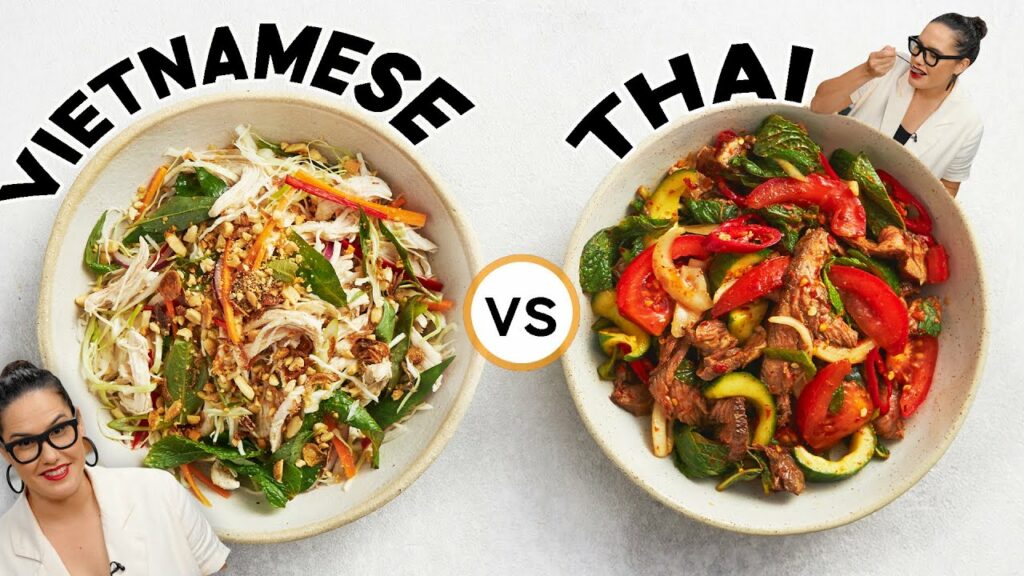When it comes to Southeast Asian cuisine, Vietnamese food vs Thai food is one of the most frequently debated topics among food lovers. Both cuisines are known for their rich flavors, fresh ingredients, and bold spices, but they differ in key ways that make each uniquely delicious. Whether you’re planning a culinary trip to Asia or just curious about what sets them apart, this guide will help you explore the cultural and gastronomic contrasts between Vietnamese and Thai cuisine.
Flavor Profile: Subtle vs Bold
One of the most noticeable differences is the flavor intensity. Vietnamese food tends to be light, fresh, and subtle. It relies heavily on fresh herbs, mild broths, and minimal use of oil. Common ingredients include fish sauce, lime, lemongrass, mint, and basil, creating a harmonious and delicate balance.

In contrast, Thai food is famous for its intense and bold flavors, often combining sweet, sour, salty, spicy, and bitter in a single dish. You’ll find a more liberal use of chili peppers, coconut milk, garlic, and shrimp paste, which gives Thai dishes a more robust and fiery taste.
Use of Spices
While both cuisines incorporate spices, the approach is different. Vietnamese cuisine uses spices in a more restrained way, letting the natural taste of ingredients shine. Even in dishes like pho or bun bo Hue, the spice level is moderate and complemented by fresh herbs.
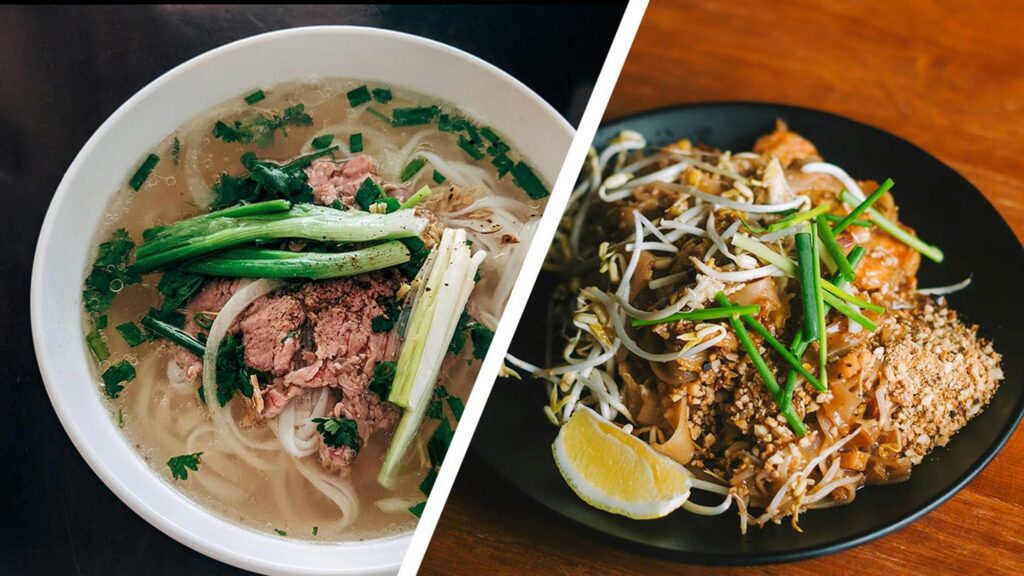
Thai cuisine, on the other hand, embraces heat and spice. Red curry, green curry, and tom yum soup are known for their spice intensity. If you’re not used to spicy food, Thai cuisine might be a bit of a challenge at first — but it’s worth acquiring the taste!
Popular Dishes: What to Try
If you’re new to Vietnamese food, must-try dishes include:
-
Pho: A rice noodle soup with beef or chicken, served with fresh herbs and lime.
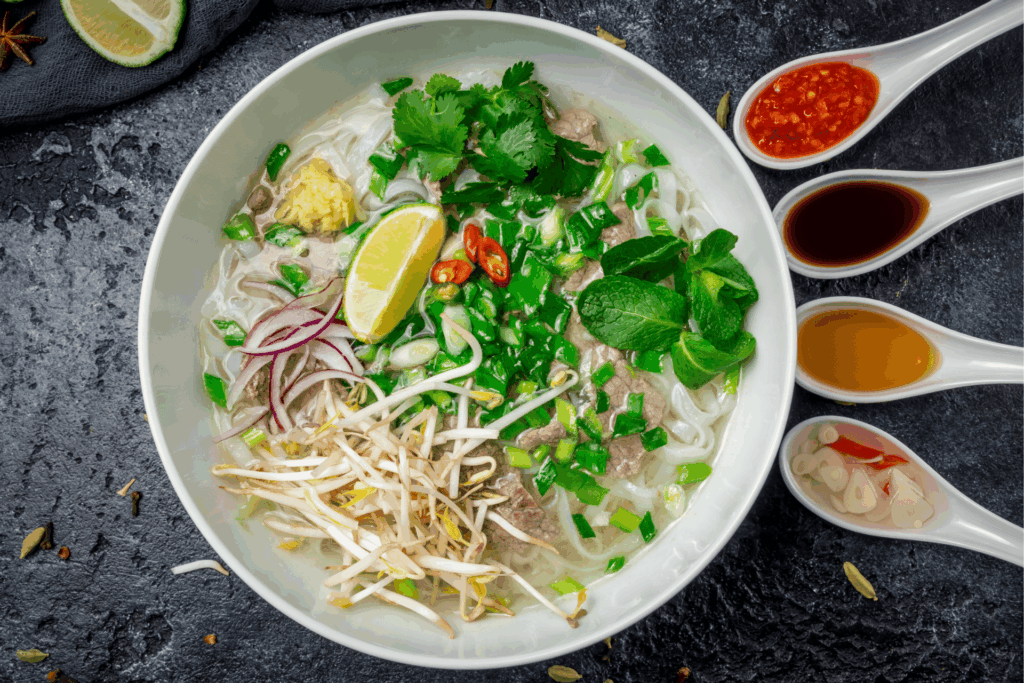
-
Banh Mi: A Vietnamese-style baguette sandwich filled with grilled meats, pickled vegetables, and pâté.
-
Goi Cuon (Spring Rolls): Fresh rolls with shrimp, pork, herbs, and vermicelli noodles, dipped in peanut sauce.
In Thai cuisine, you can’t miss:
-
Pad Thai: Stir-fried rice noodles with eggs, tofu, tamarind, and crushed peanuts.
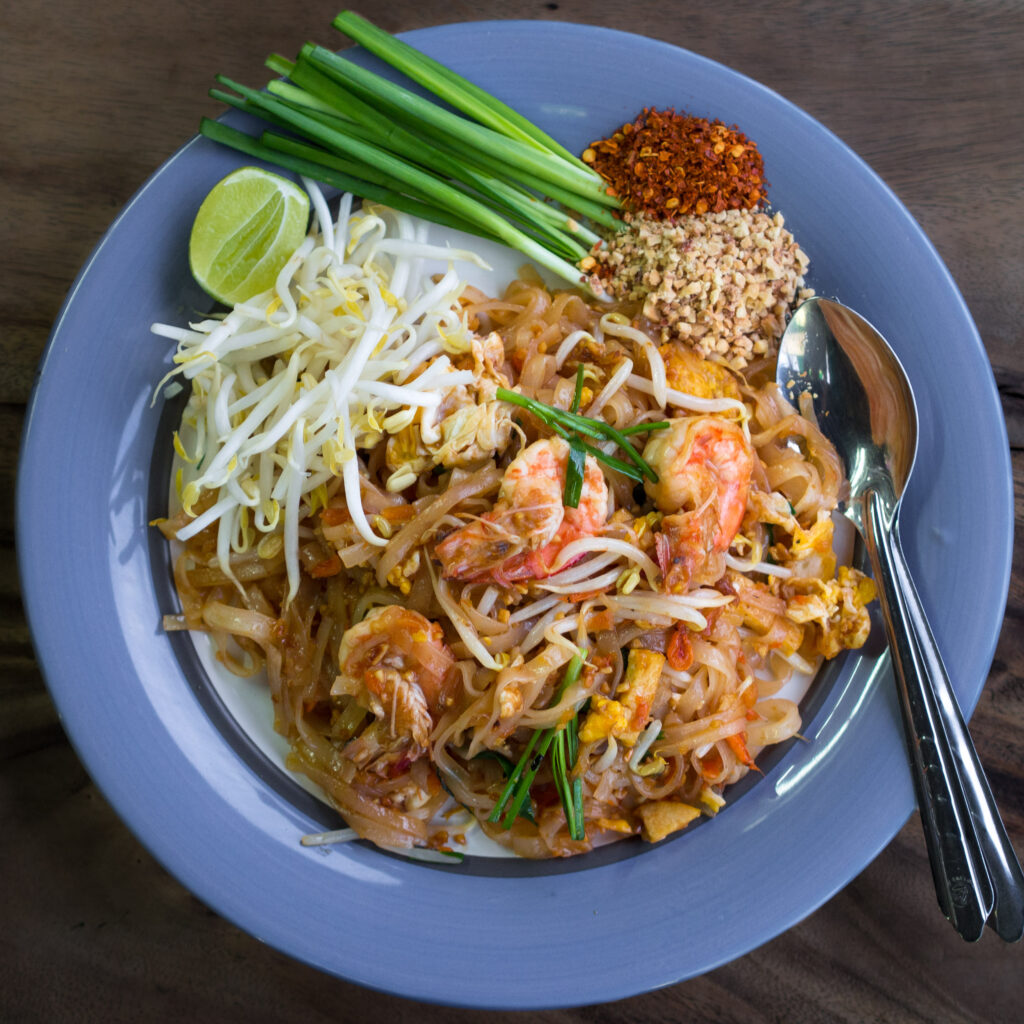
-
Tom Yum Goong: Spicy and sour shrimp soup with lemongrass, galangal, and lime leaves.
-
Green Curry: A rich and spicy curry made with coconut milk, green chili, and Thai basil.
Cooking Techniques
Vietnamese cooking emphasizes boiling, steaming, and light stir-frying. Meals are usually accompanied by a variety of dipping sauces, and presentation tends to be clean and minimalistic.
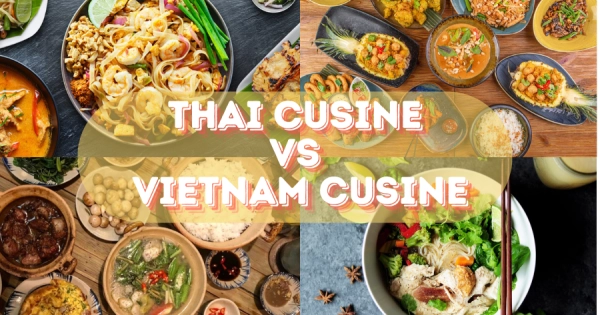
Thai cooking uses more deep frying, grilling, and pounding in a mortar and pestle. Curries and stir-fries are often richer due to the use of coconut milk and oils. Thai meals are colorful, aromatic, and visually vibrant.
Dining Culture
In Vietnam, meals are shared and often include rice, vegetables, meat or fish, and soup. It’s common for everyone to pick food from shared dishes in the center of the table. Meals are more about harmony and balance.
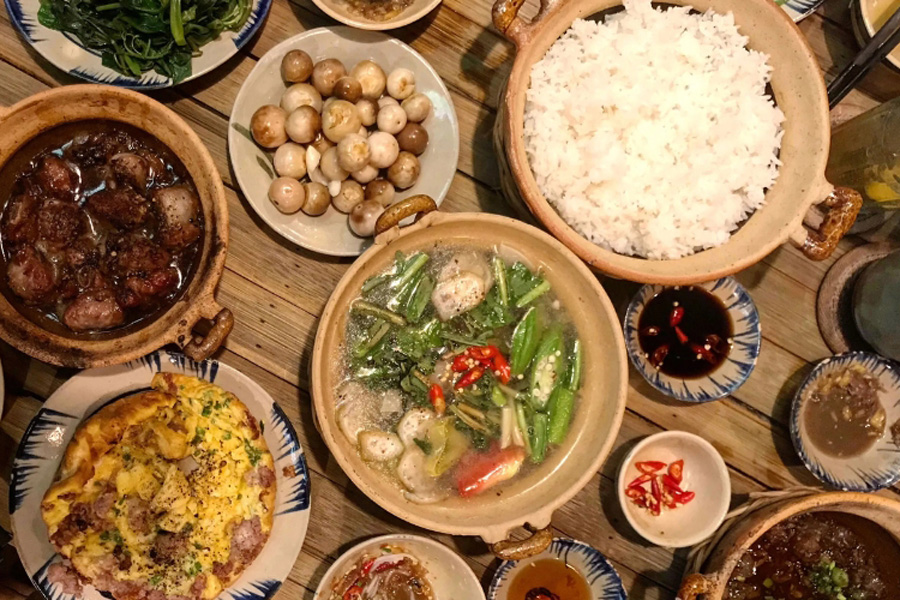
Thai dining culture also involves sharing, but there’s more emphasis on creating a combination of textures and flavors in every bite — spicy, sweet, and sour dishes are often served together.
Health Factor
Both cuisines are generally healthy, but Vietnamese food is often considered lighter, thanks to its use of fresh herbs, less oil, and more vegetables. It’s ideal for those looking for a nutritious yet flavorful option.
Thai food, while equally rich in vegetables and herbs, can be heavier due to the use of coconut milk, fried elements, and sugar.
Conclusion
So, which is better — Vietnamese food or Thai food? The answer depends on your taste preferences. If you enjoy clean, balanced, and herb-driven dishes, Vietnamese cuisine will win your heart. If you crave bold flavors and spicy delights, Thai food is your go-to.
Why not try both and decide for yourself?
Related posts:
Where to Eat Vietnamese Food in Hanoi: A Complete Guide for Asian Travelers
Vietnamese Food Culture: From Pho to Banh Mi
Non-Spicy Vietnamese Dishes: A Guide to Flavor Without the Fire




